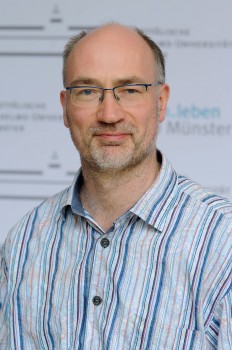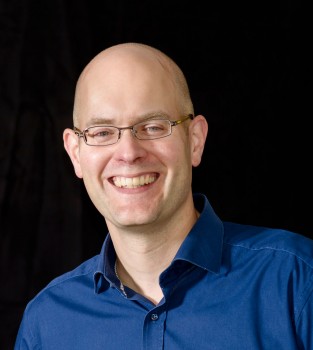
Münster University receives two new research associations
The German Research Foundation (DFG) has approved two new Priority Programmes (SPP) coordinated by the University of Münster: Bioinformatician Prof Erich Bornberg-Bauer from the Institute of Evolution and Biodiversity is leading the project "Genomic Basis of Evolutionary Innovations (GEvol)", and Chemist Prof Frank Glorius from the Institute of Organic Chemistry is coordinating the project "Use and Development of Machine Learning for Molecular Applications - Molecular Machine Learning". Both programmes focus on informatics technologies in the natural sciences.
In total, the DFG established 13 new SPPs, for which it will provide a total of about 82 million euros over three years – about five to seven million euros per SPP. The programmes each describe a specific overarching topic. If researchers are interested in collaborating on a Priority Programme, the DFG will invite them to submit the corresponding applications for research grants by a certain deadline.

New experimental and computational techniques provide innovative opportunities to study the evolutionary history of genomes (the genetic material of a living being) and to reconstruct the emergence of new traits and characteristics of species, for example insects. Those responsible for "GEvol" are using these new techniques and bringing together researchers from the fields of genomics, bioinformatics, evolutionary ecology, molecular evolution, developmental biology, taxonomy and genetics to exploit the dynamics and principles of genomic innovations of a large clade. "In the project, we are investigating, among other things, the processes underlying the most important genomic innovations in evolution - for example, gain and loss of sociality or mating systems, defence and immunity, developmental and morphological innovations and plasticity," says Erich Bornberg-Bauer.
20 to 25 groups work collaboratively under the umbrella structure of GEvol. The SPP promotes the use of new and innovative computational and experimental techniques across groups throughout the German research landscape, training a new generation of young researchers in the field of genomics. Around 20 young researchers receive state-of-the-art technical and scientific training in a highly interdisciplinary setting.
In addition to coordinator Erich Bornberg-Bauer, there are four other members on the SPP committee. They come from the Institute of Zoology and Anthropology (Göttingen University), the Senckenberg Biodiversity and Climate Research Centre (Frankfurt am Main), the Zoological Research Museum Alexander Koenig (Bonn).

The focus of the project is on molecular problems such as the prediction of chemical reactions or the development of new algorithms for the modeling of molecular properties. The aim is to develop tools that on the one hand help to understand molecular relationships (ExAI, "explainable artificial intelligence") and on the other hand model molecular behavior in such a way that they support laboratory chemists in their everyday work. The long-term goal is to use artificial intelligence to process simple tasks automatically and comprehensibly, thereby accelerating the development of analytical methods, new reactions or drugs.
One core objective of this program in particular is collaboration and networking. Thus, Frank Glorius emphasizes "We already started in 2020 to bring the community together and got a lot of positive feedback. Now we want to use this program to give forward thrust to this increasingly important topic."
Prof. Dr. Frank Glorius (WWU) launched this initiative with his co-initiators Prof Jürgen Bajorath (B-IT, LIMES Institute, University of Bonn) and Prof Karsten Reuter (Fritz Haber Institute, Berlin). In doing so, they represent three core areas of the SPP - Molecular and Drug Development, Experimental and Theoretical Chemistry.
Priority Programmes (SPP)
In Priority Programmes, researchers investigate the scientific foundations of particularly current or emerging research areas. All programmes have a strong interdisciplinary orientation and are characterised by the use of innovative methods. The promotion of young researchers is a central element of SPPs; in addition, all new collaborations have an equal opportunities concept. The DFG usually funds the programmes for six years.
